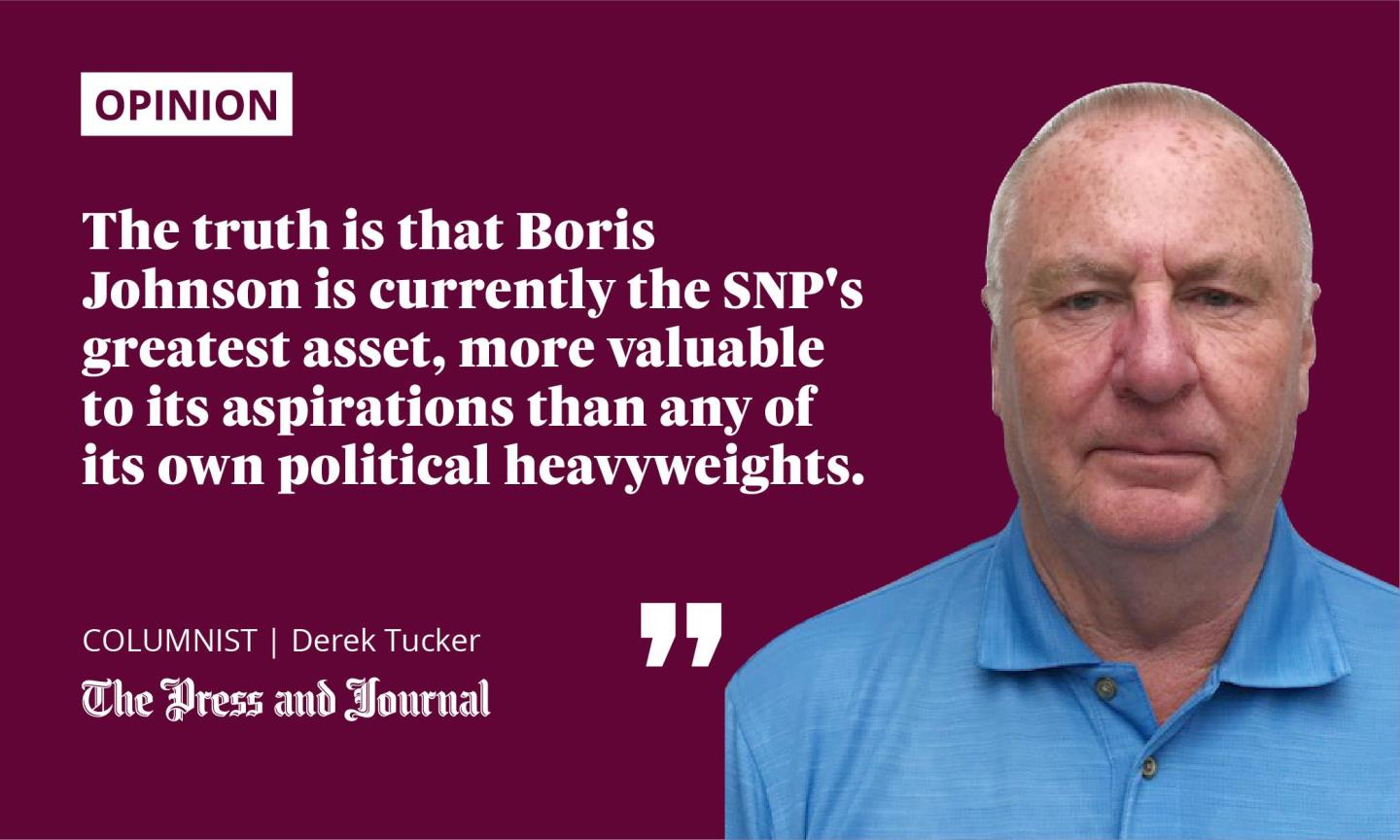SNP Westminster leader Ian Blackford must surely have been secretly thankful last week that his demand for the resignation of Prime Minister Boris Johnson ended in failure.
Mr Blackford waded into the debate about the Downing Street Christmas party, accusing the PM of shattering public trust and insisting that he should either resign or be removed by his Tory colleagues.
His comments were spot on, but he must have been relieved that they were dismissively brushed aside by Mr Johnson. For the truth is that Boris Johnson is currently the SNP’s greatest asset, more valuable to its aspirations than any of its own political heavyweights.
 His shambolic leadership has done more to further the argument for Scottish independence than anything put forward by those promoting it, and it appears that every time he opens his mouth, the opinion polls advance a percentage point in favour of leaving the union.
His shambolic leadership has done more to further the argument for Scottish independence than anything put forward by those promoting it, and it appears that every time he opens his mouth, the opinion polls advance a percentage point in favour of leaving the union.
Johnson’s Number 10 days are numbered
I must admit I find it impossible to work Boris Johnson out. He appears to believe that he can say anything he likes – regardless of whether it’s true or not – and people will believe him because of the high office he holds.
Where once his unconventional hairstyle and easy charm were able to disguise the lack of substance, they no longer work for him. He has become an irritant, and the qualities which once endeared him to people are now viewed as the irrelevancies they really are.
It is hard to see how he can salvage any reputation from the mess he has created and, right now, it appears to be only a matter of time before his party colleagues will, indeed, begin the process of replacing him.
It can be said, with some justification, that he has been dealt a bad hand, with the Covid crisis landing in his lap almost as soon as he took office. That has forced him to make decisions he could never have imagined he would have to make and, added to the inevitable fallout from Brexit, has created an economic storm that will take decades to die down.
Boris Johnson is clearly not in charge of his party and is looking more out of his depth with every passing day
But that does not, and must not, excuse the gross incompetence he demonstrates on a now daily basis. He is clearly not in charge of his party and is looking more out of his depth with every passing day.
If the prime minister cannot quickly reassert his authority, his days in Number 10 are numbered. Ian Blackford should be praying that that day is a long way off.
A favour from a stranger
I’ve never been keen on surprises. Too often they are of the unpleasant variety, and even those that appear pleasant are usually accompanied by an expectation of a favour in return.
So, when a Jiffy bag popped through my letterbox this week, my first thought was that it contained something unwelcome; a “gift” from one of the many people I’ve upset over the years. I opened the envelope, rather gingerly I admit, to reveal a book entitled Tug’s Trek and an accompanying card from the author, Alan “Tug” Morkel.
I offered to drive him to a petrol station and lend him the money to buy a petrol can and the fuel to fill it, well aware that he was a total stranger
I first met Alan some 15 years ago when my wife and I were heading out for the evening and came across a broken down car at the side of a rural road not far from our home. We stopped to see if we could help, and the driver explained that he had run out of petrol, had no money and was waiting for his wife to drive the 15 miles from their home to rescue him.
I offered to drive him to a petrol station and lend him the money to buy a petrol can and the fuel to fill it, well aware that he was a total stranger and I might never see the loan repaid. I needn’t have worried. He repaid it the next day.
Recording a compelling life story
During the short journey to and from the petrol station, Alan gave me a snapshot of his life story, which began on the family farm in Rhodesia, later to become Zimbabwe, and resulted in him fleeing with virtually just the clothes we was wearing as Robert Mugabe’s armed henchmen seized control of his farm.
Tug’s Trek is a self-published, factual account of his forced exile from his homeland and his arrival in Aberdeen, where the events he had witnessed during the civil war in Zimbabwe and his experiences in the SAS caused him to suffer a nervous breakdown.
The book charts his mental illness in graphic detail, laying bare his downward spiral into alcoholism, the breakdown of his marriage and the long, painful recovery process which has repaired him. It is incredibly well written and far more compelling than I expected when it first landed in my hallway.
Alan’s journey through life has not been smooth, but it has certainly been eventful.
Derek Tucker is a former editor of The Press and Journal











